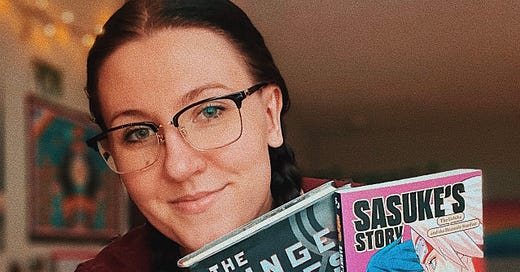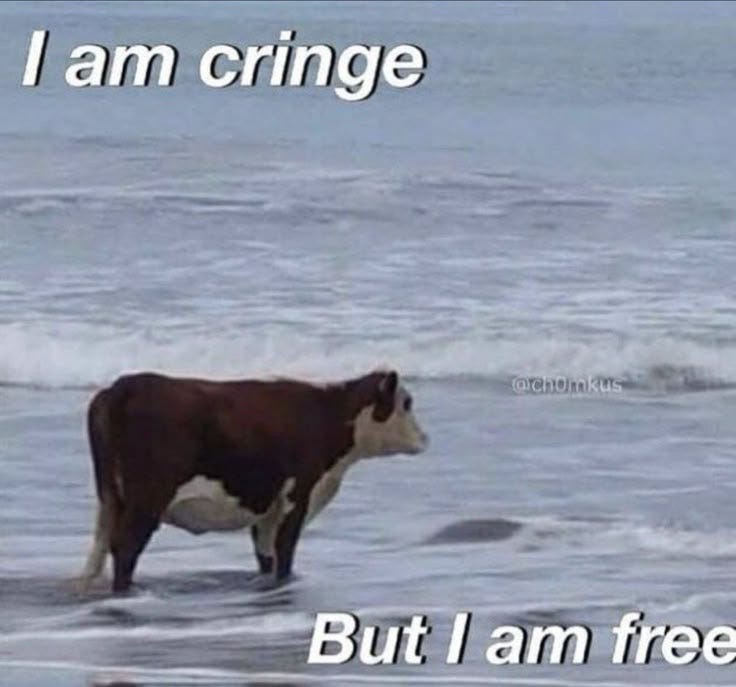Fan Fiction, Spicy Lemons, & Cringe
The Purpose of Fanfic & What Writers Can Learn From Writing It
Ah, fan fiction. The term likely brings to mind works like My Immortal (Harry Potter fandom) and Master of the Universe (Twilight fan fiction that eventually became Fifty Shades of Grey), and the entire subgenre of published Reylo fanfic (Rey and Kylo Ren from the Star Wars sequels). It also likely brings to mind nerdy young girls hunched over their phone, reading tiny text on FanFiction.net or ArchiveofOurOwn.org—AKA, me in the seventh grade.
Needless to say, fan fiction has been a cornerstone of fan culture for over fifty years now. It was popularized by the Star Trek fandom, but I’d say that fan fiction as a genre likely didn’t explode until widespread adoption of the internet. Now, fan fiction is everywhere. And in my opinion, the world is better for it.
My Long History with Fan Fiction
When I was four years old, I started drawing what I call “sequential pictures.” I would draw anywhere from 10-15 images on copy paper using crayons and pencil—but the difference between the sorts of regular drawing that other children do and what I was doing was that each of these drawings went together in a sequential order. They formed a story, similar to comics or storyboards. I dictated narration and dialogue to my mother, who wrote them down on the pages. Then we stapled them together, and voilà—Olivia J. Bennett’s first books! Before I could so much as write my own name, I was writing.
But the subject matter of these little story booklets was far from original content. They were retellings of Cinderella and Sleeping Beauty, a sequel story to The Incredibles, expanded backstories from Sharkboy and Lavagirl.
Fan fiction, I was writing fan fiction.
Fast forward a little bit to 2012 when I was first introduced to The Hunger Games trilogy. With a dinosaur of a laptop in hand, I was back at the fan fiction game, writing from Peeta and Foxface’s points of view, expanding the last chapter of Mockingjay, creating original Hunger Games stories using myself and my friends as tributes (No, let’s not examine how weird that is right now. Listen, I was twelve). I also read a lot of fan fiction during this initial Hunger Games obsession, too.
Eventually, I began writing my own stories that were completely original (or, as original as artwork can get), but point being:
I’ve been writing fan fiction longer than I’ve been writing original intellectual property.
This isn’t an exhaustive history of my writing journey (I skipped over the whole Middle School Diaries era, wherein I remixed the Diary of a Wimpy Kid and Dork Diaries format to write a pseudo-memoir), but all this to say, I know my stuff. Fan fiction has—and probably always will be—a cornerstone of both my writing journey and my writing process.
Cringe & The Purpose of Fan Fiction
Fan fiction is cringe. There, I said it. It’s okay, we were all thinking it.
But the cool thing about cringe is that cringe is cool, actually. Cringe is good. Cringe indicates a state of being unabashedly oneself. Cringe is authenticity, unbridled. When you’re an artist, cringe means that you’ve silenced the Evil Editor and banished the Chorus of Critics and have surrendered to the Divine Muses.
It’s why the Star Wars prequels are kinda good actually. The plots are bloated, the dialogue is wooden, and the swipe cuts are atrocious, but there’s something magically enjoyable about the oblivious passion of it all. It’s George Lucas’s (mostly) unfettered vision, on full display. There’s courage in art, and there’s even more courage in cringey art, because it means the artist is unafraid.
Cringe is an essential part of the creative process, because honestly, art is kinda cringey when you think about it for too long. Now, there’s going to come a point in that creative process when you’ll have to trim down on all of the self-indulgent, ostentatious cringe. But having it there in the first place indicates a raw, beating heart behind the piece of art you’ve created. Usually, the process to trim the cringe from art usually involves the artist taking some time and space away from the project and getting feedback from trusted others.
But based on the nature of fan fiction, this process often doesn’t happen in the same way it happens with original, published pieces of short- or long-form fiction.
#NoBetaWeDieLikeMen
That’s because, no matter how well-written, fan fiction isn’t supposed to be like polished, perfect prose. Fan fiction is supposed to be self-indulgent, tropey, cringey, melodramatic. That’s half the damn fun. If I wanted polished, perfect prose, I would have picked up a goddamn book. The reason I logged onto AO3 on this fine evening is so that I could have filth! Trash! Ostentatious garbage! Fan fiction’s whole purpose is to indulge us in what-ifs, fill in the holes left by the original work, and to conglomerate all of our favorite elements of the original work into one tasty slop.
The purpose of fan fiction is to free the cringe within, for both the writer and the reader. It’s expression at its most primal. And that’s why I advocate that—in order to be a good writer—you must dive headfirst into fan fiction.
What Writers Can Learn From Writing Fan Fiction
1. You Learn What You Like
Ok, this is where the spicy lemons from the title come in. If you’re unfamiliar, before the days of “Spicy Booktok,” sexual content in fiction used to be referred to on a Citrus Scale. I found this graphic on PCC Fandom Wiki:
These days, sexual content in literature is now referred to using the spicy pepper emoji, with zero peppers loosely corresponding to “Citrus” and five peppers loosely corresponding to “Grapefruit.”
This is clearly very serious, academic content, as you can see.
By both reading and writing fan fiction, you can, as the title says, learn what you like. I mean this in a sexual exploration kind of way—given that fan fiction is associated with erotica and kink—but I also mean this in a literary kind of way. (If you read my last Substack post, you’ll know these are kinda one and the same.) By consuming and creating fan fiction, you can learn what kinds of things you enjoy–because fan fiction is made up of the basic building blocks of story (like archetypes and tropes) distilled down to their purest form.
Fan fiction is also prime time to practice these newfound favorite tropes and archetypes. Children play with wooden blocks before they’re allowed to construct with real wood and nails; the same goes for budding (and experienced) writers. Fan fiction is the writer’s playground: the primordial breeding grounds for what might become original fiction.
You learn what you like, so then you can more intentionally incorporate those things into your original works in meaningful ways—because you’ve already poured 45k words into a Naruto Blank Period SasuSaku fan fiction that involves backpacking, action, the one-bed trope, second-chance romance, and the angsty dark-haired brooding bad boy. These tropes on their own can be tired and cringey, but by having 45k words of practice at your back, you can use these tools to create authentic, original fiction.
2. You Can Use It to Soft-Reset
I’ve often used fan fiction as a sort of palate cleanser. Just finished revising a big project? Time to write some fluffy one shots. Got writer’s block? Pump up the angst between my favorite ship.
Another thing I enjoy is writing “fan fiction” about my own original IP. So far, I’ve done it for both of the standalone YA contemporary novels I’ve published. This can take many forms. For A Cactus In the Valley, I wrote a dual timeline novella about another character who only appears in flashbacks. For Casually Homicidal, I basically wrote an extended epilogue: a novella about the fallout from the ending of the novel. No spoilers.
Neither of these works were published—so why did I write them? Because I wasn’t ready to let the world or the characters go. I don’t know that I necessarily had more to say, but both of these works felt like transitional pieces. Pieces I wrote in order to end it not for the audience, but for myself. A standing ovation where I was the only one standing. Fan fiction where I’m the fandom’s biggest—and only—fan. It’s imperative that every artist is their own biggest fan—and I don’t mean in a self-important, pretentious kind of way. I mean that you have to be cringe.
Fan fiction helps you step away from your own work without stepping away from writing as a whole. It helps keep those claws sharp, those skills in practice. It can also help you let go.
3. You Learn How to Have Fun Again
Storytime.
Back in 2022, I was attempting to write a zombie apocalypse novel. I had written 90k words and it still felt like I had gotten nowhere. I was defeated. Ready to quit writing. Convinced I had already written my magnum opus in the form of Casually Homicidal.
Through many a conversation with my writer bestie Alyssa, I somehow convinced myself to return to fan fiction. But I hadn’t written any in years, probably not since writing a few one-off one shots about the Oceanic 815 survivors from Lost and imagining a world in which we got a sequel series about Walt, Aaron, Ji Yeon, and Clementine in 2018.
Anyway, I started writing that, uh, SasuSaku Blank Period fic. I started writing something I knew would never see the light of day. Something completely for myself, something completely self-indulgent. Something cringe.
But this is what gave me the freedom and the courage to begin writing my next big thing, adult fantasy series The Artifacts of Fellglow.
Fan fiction is a great way to keep the writing flowing without the personal stakes of original content. If you’re an artist worth your salt, you care a lot about your IP. Maybe even so much so that that pressure prevents you from actually doing the thing. What if it isn’t good enough? What if it’s too hard? What if I can’t ever realize my creative vision?
Who cares! With fan fiction, there are virtually no personal stakes. The point is having fun, the point is writing it for shits and giggles. The point is writing what you want. It removes the immense pressure that is creating from scratch, especially if you’re a published author and this isn’t your first rodeo.
From what I’ve found, removing that invisible pressure—silencing the Evil Editor and banishing the Chorus of Critics—is the key to removing writer’s block.
Conclusion
Oh, fan fiction! The genre that you are <3
I guess this post is an encouragement to both be cringe and write fan fiction. Be gay, do crime. That sort of thing.






